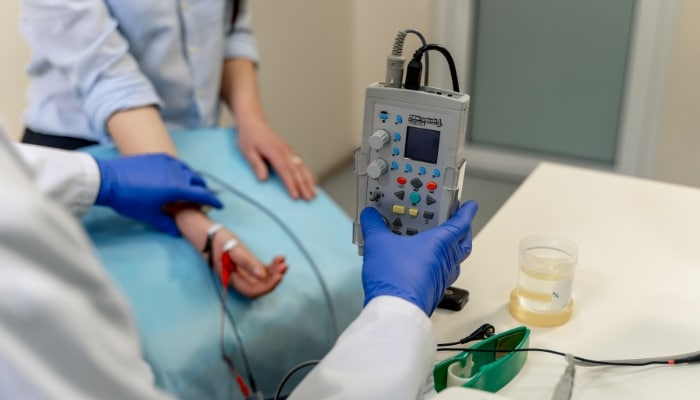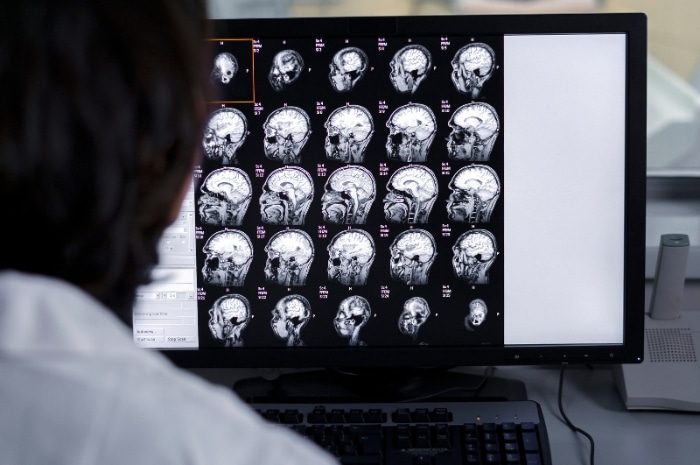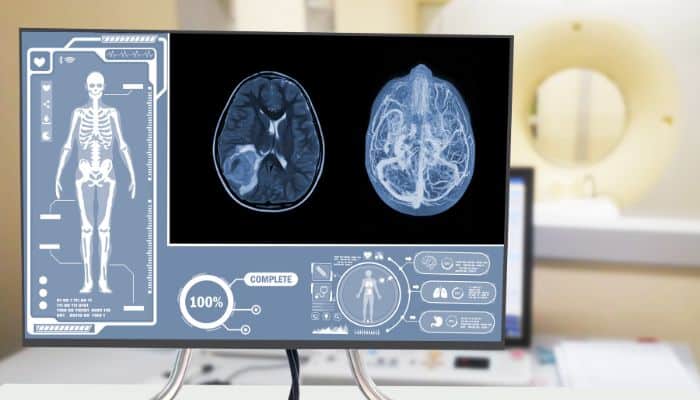4 min read
How to Prepare for a PET Scan: Instructions and Recommendations

If you’ve been recommended a PET scan and you’re not sure what to expect, you’re not alone. This type of exam can feel a little intimidating at first, but with the right information, you can face it with confidence. In this article, we will guide you step by step on how to prepare for a PET scan, what to expect during the procedure, and answer some frequently asked questions that you probably have.
What is a PET Scan and How Does It Work?
Imagine your body as a bustling city, with thousands of processes happening every second. A PET scan acts like a traffic supervisor that not only watches how the cars (your organs and tissues) are moving but also how those vehicles are functioning (the cells in your body).
A PET scan is an imaging test that uses a small amount of radiotracer, a radioactive substance injected into your body, to help doctors see how your organs are functioning in real-time. Unlike other scans like CT scans or MRIs, which only show static images, the PET scan shows the activity within your organs, which helps detect health issues at much earlier stages.
Difference Between PET Scan, CT Scan, and MRI
It’s normal to get confused with all the medical terms. Here’s a quick comparison:
|
Test |
Technology Used |
What It Shows |
Benefits |
|
PET Scan |
Radiotracer (radioactive material) |
Organ function (cellular activity) |
Detects early diseases like cancer and brain disorders |
|
CT Scan |
X-rays |
Images of organs and structures |
Quick and accessible, useful for detecting fractures and cancer |
|
MRI |
Magnetic resonance imaging |
Soft tissue details |
No radiation, excellent for brain tissues |
As you can see, each test has its own purpose, and the PET scan is especially helpful for seeing how cells are behaving in real-time.
How to Prepare for a PET Scan?
Preparing for a PET scan is essential for getting clear and accurate results. Wondering how to get ready? Here are the most important steps:
General Preparation Instructions
Before your PET scan, make sure to inform your doctor about all medications, supplements, and vitamins you’re taking. This is important because some medications can affect the results. Also, if you are pregnant or breastfeeding, make sure to inform your healthcare provider.
You should also let your doctor know if you are prone to anxiety or claustrophobia, as some patients feel uncomfortable in the enclosed space of the scanner. There are mild sedatives that can help you relax during the procedure.
Diet and Food Restrictions
One of the most important things to remember is that you should not eat for at least six hours before your PET scan. The only liquid allowed is water. If you have diabetes, your doctor might adjust these recommendations, so make sure to follow their specific instructions!
Medications and Special Conditions
Have questions about your medications? Most of the time, you can continue taking your usual medications, but there are some exceptions. If you take medications that may interfere with the scan results, such as those for heart or brain conditions, your doctor will guide you on what to do. If you’re unsure, it’s always a good idea to ask before your appointment.
What to Expect During a PET Scan?
Now that you know how to prepare, let’s talk about what will happen during the PET scan. It’s completely normal to feel nervous, but knowing what to expect can help ease your mind.
Step-by-Step Procedure
The first thing that will happen is that you will receive an injection of a radiotracer, a radioactive substance that your body will absorb. After the injection, you will need to wait for about 30 minutes to 1 hour for the radiotracer to spread throughout your body. During this time, you should stay calm and rest.
In some cases, if you are getting a PET/CT scan, a contrast dye will also be administered to improve the image quality.
Duration of the PET Scan
The actual scanning process usually takes about 20-30 minutes, but it’s important to stay as still as possible to get clear images. After the scan, you may need to wait a few minutes while the technologist reviews the images to ensure everything is clear.
Risks and Side Effects
A PET scan is generally a safe procedure, and side effects are extremely rare. The amount of radiation used is minimal, and it doesn’t stay in your body for long. To help eliminate any remaining radiotracer, you’ll be encouraged to drink plenty of water after the test.

Call to Action
If you’re ready for your PET scan, or if you need more information on how to prepare for this procedure, don’t hesitate to reach out to us. Our team is here to help you feel calm and ready every step of the way. Remember, your health is the most important thing, and being well-informed is the first step to taking good care of it!
Imaging Procedures
Here’s a helpful comparison of common imaging exams to help you understand the differences and know which one might be right for you:
|
Test |
Technology Used |
What It Shows |
Benefits |
Drawbacks |
|
PET Scan |
Radiotracer (radioactive material) |
Organ function (cellular activity) |
Detects early diseases like cancer and brain disorders |
Higher cost, not suitable for pregnancy |
|
CT Scan |
X-rays |
Images of organs and structures |
Quick and accessible, useful for detecting fractures and cancer |
Doesn’t show cellular activity, uses radiation |
|
MRI |
Magnetic resonance imaging |
Soft tissue details |
No radiation, excellent for brain tissues |
Slower, more expensive, can be uncomfortable |
This type of information can help you make informed decisions about which procedure is most appropriate for your needs.
Conclusion
A PET scan can be a valuable tool for diagnosing and monitoring certain health conditions. With this guide, we hope you feel more prepared and confident for your exam. Remember, your well-being is the most important thing, and being well-informed is key to facing any medical procedure with ease.

Frequently Asked Questions About PET Scans
1. How long before a PET scan should I stop eating?
To get accurate results, it is recommended that you do not eat for at least six hours before your PET scan. Water is the only allowed liquid, so stay hydrated. If you have diabetes, your doctor may adjust this recommendation, so be sure to follow their specific instructions.
2. Can I take my medications before a PET scan?
In most cases, you can continue taking your usual medications, but there are exceptions. If you take medications that might interfere with the results, such as those used for heart or brain conditions, your doctor will give you specific instructions. It’s always best to confirm with your doctor before the scan.
3. Is it safe to have a PET scan if I’m pregnant or breastfeeding?
PET scans are not recommended for pregnant or breastfeeding women due to the radiation involved in the procedure. If you think you might be pregnant or are breastfeeding, it’s very important to inform your doctor before scheduling the exam. The radiation could be harmful to the fetus or infant.
4. How should I prepare if I have diabetes?
If you have diabetes, your preparation for the PET scan should be more careful. Typically, you will need to adjust your medications and diet to ensure that your glucose levels are controlled before the test. Make sure to follow your doctor’s instructions closely, as high or low blood sugar can affect the results.
5. What happens if I move during the PET scan?
It is crucial that you remain as still as possible during the scan. Any movement can blur the images and affect the quality of the diagnosis. If you feel uncomfortable or anxious, let the technologist know, and they can provide options, such as a mild sedative, to help you relax during the procedure.